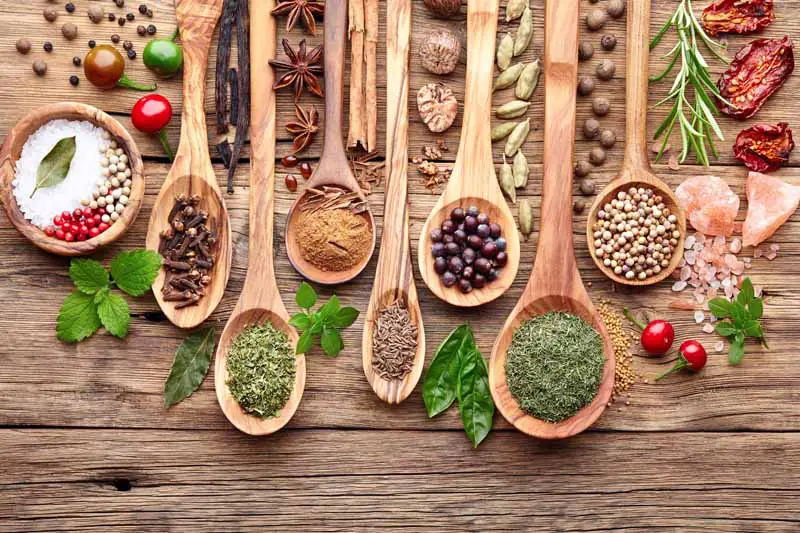Introduction
Cooking with dietary restrictions is needed and can pose unique challenges, but with the right knowledge and preparation, it can also become a gratifying and delectable experience. Whether you’re following a specific diet due to allergies, intolerances, or health concerns, understanding the indispensable strategies is imperative for achieving satisfying meals.
In this article, we will explore ten essential tips that are still needed to cook with dietary restrictions successfully. These tips will empower you to create flavorful dishes while navigating the limitations imposed by your dietary needs.

Table of Contents
8 Amazing Tips Needed for Cooking with Dieatary Restrictions
1. Extensive Research and Understanding of Dietary Restrictions
Prior to embarking on your culinary journey, it is needed to conduct comprehensive research and acquire a needed deep understanding of your specific dietary restrictions. Different diets entail diverse limitations and allowances, necessitating familiarity with the required ingredients, substitutions, and cooking techniques. Seeking guidance from healthcare professionals or registered dietitians can provide invaluable assistance and ensure accurate information is at your disposal.
It is really needed to do this process, for the reason that it was instructed by a professional in the first place that you need to adjust to have dietary restrictions for you to become healthy and avoid any forms damages in the body, or even illness we can get from careless eating. Remember, knowledge is “king,” do not hesitate to learn about this, even if we can’t eat those ingredient that makes the food delicious anymore, there’s always an alternative.
2. Stocking Up on Vital Ingredients
To cook successfully with dietary restrictions, it is needed to maintain a well-stocked pantry. Identify the indispensable ingredients still needed for your particular diet and ensure they are readily available. For instance, if you follow a gluten-free diet, ensure you have an ample supply of gluten-free flours, grains, and baking essentials. Similarly, if you adhere to a low-sodium diet, it is necessary to have an array of herbs, spices, and salt alternatives on hand. Being adequately prepared with the required ingredients will facilitate the creation of meals that satisfy your dietary requirements.
One fact also, high in-take of sodium will break the equilibrium of sodium of the body of a person, which will make pressure the pressure of the blood, in short increases the blood pressure of the Body. Also fats one contributing factor that increases the blood pressure.
Why am I saying this? Because, around 2019 or 2018 If I remember I was diagnosed with hypertention with a regular BP of 150-160/90-110 mmHg and a fatty liver stage I. So, probably you understand now why it is essential to have dietary restrictions when it comes to cooking, we need to be mindful of the ingredients we cook, and the contents in it.
3. Embrace the Abundance of Fresh Fruits and Vegetables
Fresh fruits and vegetables play a vital role in any healthy diet and are needed, and their significance is even more pronounced when cooking with dietary restrictions. Bursting with needed nutrients, fiber, and natural flavors, these ingredients have the power to elevate your dishes while offering endless possibilities. Incorporating a wide variety of fruits and vegetables in your meals will ensure you acquire the necessary vitamins and minerals that are still needed for optimal health.
4. Experiment with Alternative Sources of Protein
For individuals following dietary restrictions such as vegetarian, vegan, or allergen-free diets, discovering alternative sources of protein is of utmost importance. Embrace the exploration of plant-based proteins such as legumes, tofu, tempeh, and quinoa, which not only provide the necessary protein but also introduce diversity to your meals. Additionally, consider integrating nuts, seeds, and dairy-free alternatives like almond or soy milk to fulfill your protein requirements.
It does not mean, that you need to always eat eggs, or meat, or fish. But, you can have proteins of sort with healthy alternatives. Do not shy away from trying these stuff.
5. Diligent Label Reading and Identification of Hidden Ingredients
When grocery shopping with dietary restrictions, it becomes paramount to diligently read labels. Numerous food products conceal hidden ingredients or allergens that may not be immediately apparent. Dedicate time to meticulously scrutinize ingredient lists, allergen warnings, and nutrition labels, ensuring that the products align with your dietary needs. By doing so, you can effectively avoid potential allergens or ingredients that may not be suitable for your specific diet.

My mother is very particular with this. Before she buys an ingredient in the grocery, she always checks the ingredients or the contents of it, because there are some contents that she is very wary of that may cause me to have allergies. And also, we have to be particular just like my mother with it’s expiration date. By being vigilant we may be able to avoid food poisoning or other harm that may happen to our bodies when we intake those expired ingredients.
6. Strategic Meal Planning and Preparation
Meal planning and preparation significantly simplify the process of cooking with dietary restrictions. Allocate time each week to plan your meals, create comprehensive shopping lists, and pre-prepare ingredients. This proactive approach saves time during busy weekdays and guarantees the availability of the necessary ingredients. Furthermore, preparing meals in advance enables you to exercise control over the ingredients used, making it easier to adhere to your dietary restrictions.
7. Unleash the Flavors with New Spices and Herbs
Cooking with dietary restrictions does not require sacrificing flavor; in fact, it presents an opportunity to explore new spices and herbs that can revolutionize your dishes. Broaden your collection of seasonings and embrace the incorporation of turmeric, cumin, paprika, and cinnamon to introduce depth and complexity to your meals. Fresh herbs such as basil, cilantro, and rosemary can also enhance the taste of your creations.
8. Mastering Substitutions and Adaptation of Recipes
The ability to adapt recipes to suit your dietary needs is a valuable skill to acquire. Familiarize yourself with ingredient substitutions that are still needed to align with your restrictions. For example, coconut milk can often replace dairy milk, and applesauce can substitute eggs in baking recipes. Engage in experimentation with different substitutions and techniques to achieve the desired texture, flavor, and consistency in your dishes. Practice will enhance your confidence in modifying recipes to suit your needs effectively.
Cooking is always not self-centered, be mindful to consider also the one who eats your cooking. It does not mean that delicious foods are meant to be eaten by all, but it also needed to consider the health of those who are gonna eat it. By that, you can secure their well-being and also making sure their safety while they eat the food you cooked.
Conclusion
Cooking with dietary restrictions can be a gratifying and enjoyable experience with the right knowledge and indispensable strategies. By thoroughly researching your dietary needs, stocking up on vital ingredients, exploring alternative protein sources, and embracing fresh produce, you can create flavorful meals that adhere to your restrictions. Diligently reading labels, engaging in strategic meal planning and preparation, and discovering new flavors are needed steps in this journey.
Seek support from others facing similar challenges, and master the skill of adapting recipes to suit your needs effectively. Above all, maintain a positive mindset and approach the experience with an open mind.
With these ten essential strategies, you will be fully equipped to navigate the realm of cooking with dietary restrictions and savor the culinary delights that await you.
Bible Verse
1 Corinthians 13:13 "And now these three remain: faith, hope and love. But the greatest of these is love."
Well, if you think about the saying, “A food’s secret ingredient is love.” Now it makes sense to all of us. Whatever it is important in your life right now, be reminded that Paul said that among faith, hope, and love; that greatest is love. Let love in your life be abounding, the same goes with cooking. God bless!
Internal Links
- Google AdWords Campaign: 9 Ultimate Tactics to boost Work
- At Present: Exploring the Future of AI through 10 Fun Facts
- Unveiling 6 Paths to a Life Cycle of Healthy Aging
- 8 Important Information: Nurse Roles in Refining Client Care
- Interest Of Exploring Users: 11 Captivating Mobile Apps



